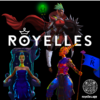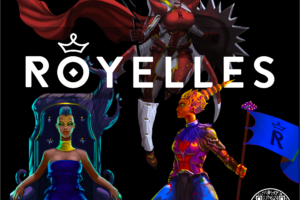
The academic hive is abuzz with blockchain activity. Students looking to formally study blockchain technology can now do so at a number of prestigious universities, including Stanford, UC Berkeley, Duke, Georgetown and MIT. The blockchain bug has even made its way into the ivy league at Cornell and Princeton Universities.
“The courses are often jam-packed, and most have waiting lists,” CNBC says of blockchain classes at Berkeley, which also has a student club devoted to the block. The club is so popular it turns away 96 percent of applicants, according to CNBC. Most students, they say, are more motivated to improve the world than they are to make tons of money.
Across the pond, faculty from Oxford are going beyond just offering classes and developing what they hope will be the world’s first decentralized, borderless, blockchain-based university, called Woolf University.
The Borderless Blockchain University
Woolf University’s vision is a school where students can ‘show up’ to a class by checking in on the app. The app executes smart contracts that track the student’s academic history and financial aid, automatically pay the professor, and bypass innumerable bureaucratic hurdles usually relegated to lengthy paperwork processes.
For about half the cost of regular tuition, a student in Brooklyn could take a class in Yoruba from a professor in Nigeria and earn an EU degree.
‘The World’s First University ICO’
Woolf University’s founder Joshua Broggi, who also serves on Oxford’s Faculty of Philosophy, has just announced what he’s calling “the world’s first ‘university ICO’.”
“Woolf will use a blockchain to enforce regulatory compliance, eliminate bureaucratic processes, and manage the custodianship of sensitive financial and personal data,” the announcement says.
“Our ultimate aim is for this to be a driver of job opportunities and security for academics, as well as a low-cost alternative for students,” Broggi told Forbes.
Private sale of tokens is open now, and crowd sale will be August 30th through October 10th. Token sales are not available to citizens of China, the United States, or Iran.
Stanford is Taking Blockchain in a Different Direction
Oxford isn’t the only place expanding their blockchain vision beyond 202 classes.
Last month, Stanford announced their Center for Blockchain Research (CBR), which endeavors to develop new blockchain based technologies at one of the world’s top research institutions.
Led by professors Dan Boneh and David Mazières, the center’s first five years of research are backed through partnerships with some of crypto’s big names: the Ethereum Foundation, Protocol Labs, the Interchain Foundation, OmiseGO, DFINITY Stiftung, and PolyChain Capital.
The focus of the CBR will be blockchain as it relates to computer engineering, and its potential impacts on global business. “This is a fascinating area of research with deep scientific questions,” said Boneh. “Once you get into the details you quickly realize that this area will generate many PhD theses across all of computer science and beyond.”
A Global Watershed
Last fall the Lucerne University of Applied Sciences and Arts announced that they now accept tuition payments in Bitcoin. In April, the world’s first masters degree in cryptofinance was launched in Brazil. Universities in Moscow, Copenhagen, Cambridge and Cumbria are also researching blockchain’s now and future uses.
These developments, when taken together, could indicate a global watershed moment in the marriage of academia and blockchain tech.
Blockchain and Academia are Transforming Each Other
With the global academic world switching on to blockchain’s potential, and with projects like the CBR and Woolf University taking shape, the world of academia could be at a transformative threshold. Woolf students could conceivably find themselves learning about the blockchain through a blockchain supported infrastructure, while Stanford grads could be taking what they learn in blockchain courses and applying it to doctoral research in the CDR.
We can expect this to transform academia. It’ll transform the blockchain, too.

















Hi,
I am on the core leadership of Woolf. It is important to make clear for the readers that the Woolf project was designed independently from the University of Oxford, although several of its members are from that university.
Thank you for the correction! I’ve updated the title and body to reflect this.
Very good post. I will be going through some of these issues as well..